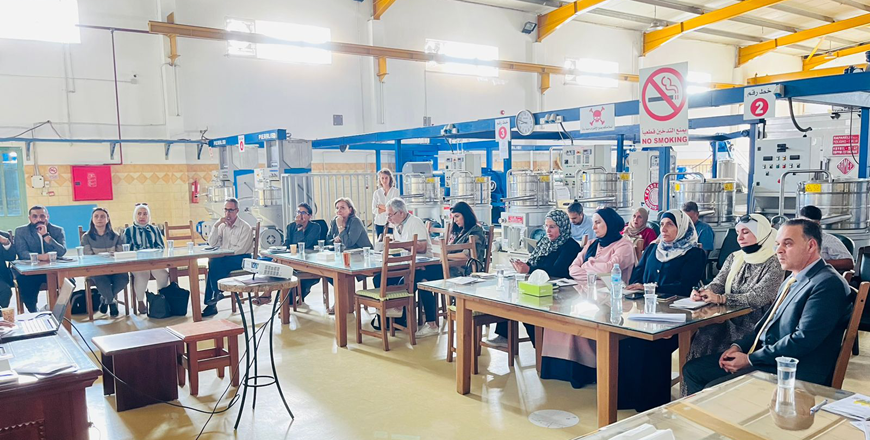AMMAN — The Food and Agriculture Organisation of the United Nations (FAO) and the European Bank for Reconstruction and Development (EBRD), in collaboration with the Ministry of Agriculture (MoA) and with the support of the European Union (EU), are organising two training sessions on best practices in olive oil production for key players in Jordan’s olive oil industry.
Participants in the training include policy-makers, government officials, large and small millers, international business leaders, specialists from development institutions and investors, according to a statement from FAO.
The training sessions are organised specifically with the General Syndicate of Jordanian Olive Oil Mills Owners and Olive Producers as well as the Centre for the Promotion of Imports from developing countries (CBI), according to a statement from FAO.
The training aims to raise awareness among the MoA’s agro-engineers and mill technicians on the best practices to adopt, and the pitfalls to avoid in the production of extra virgin olive oil.
From harvesting, transportation and milling to storage, the international expert will go through the different steps of the production process and provide information on the practices to adopt, such as setting up the equipment and the variables to control during the production process, among others.
The training will be complemented by olive oil tasting sessions, as it is key for millers to also be able to identify the positive and negative attributes in the olive oil, said the statement.
With acquired knowledge from the trainings, it will allow developing the domestic market and improving the visibility of Jordan olive oil on international markets as a producer of extra virgin olive oil, the statement said.
This initiative is part of a project supporting the olive oil sector by developing sustainable value-chains through knowledge products and technical assistance under the EBRD-EU Value Chains Competitiveness Programme to enhance the competitiveness of small and medium enterprises (SMEs).
This programme draws on experience in analysing and addressing key constraints to the agri-food sector’s development in the SEMED region, in particular in the olive oil value-chain (Morocco, Tunisia, West Bank and Gaza Strip).
Within this project, the FAO Investment Centre, in cooperation with the FAO Representation in Jordan, prepared a sector review study to assess the performance of the sector, its opportunities and gaps for transforming the olive oil sector.
The sector review will be discussed at the beginning of next month with officials from the public and private sector, read the statement.
FAO Representative in Jordan Nabil Assaf said: “Olives constitute 20 per cent of the total cultivated areas with an estimated area of 570,000 dunums and 72 per cent of the total fruit trees.”
“Olive oil is one of the principal agri-food products in Jordan and a strategic crop from an environmental and socio-economic perspective as it is estimated to provide employment to about 80,000 households. The olive oil industry is an important source of employment for rural Jordanians. The country produces an average of 23,400 tonnes of olive oil per year, but most is sold in bulk to domestic consumers,” Assaf added.
Director of the Olive Directorate at the Ministry of Agriculture, Osama Kattan, said: “The government of Jordan, represented by the Ministry of Agriculture, has sought to support the olive sector, given the increasing importance of the olive sector in the national economy, and in coordination with all official and private agencies that deal with the olive tree and olive oil in cultivation and manufacturing and trade within a well-established institutional base, in addition to coordinating with international institutions operating in Jordan to take advantage of their capabilities in serving this sector.”
Within the framework of the training, Zidan Al Manaseer, General Manager of the Modern Jordanian Company for Food Industries, which is hosting the training, stressed the importance of this training to the mill owners before the oil production season, to improve the levels of modern machinery and to improve the quality of Jordanian olive oil.
